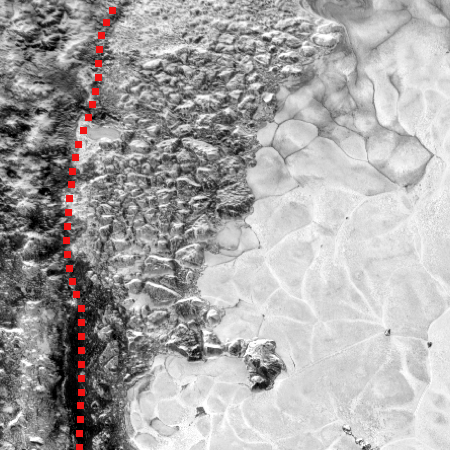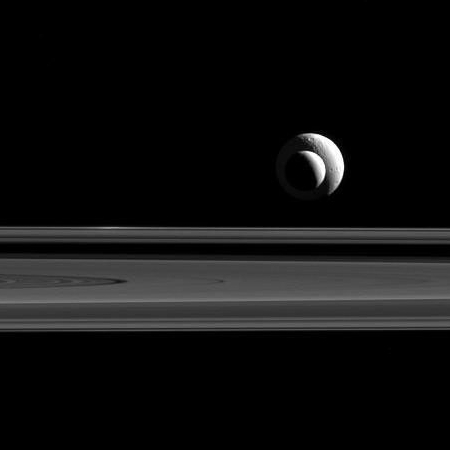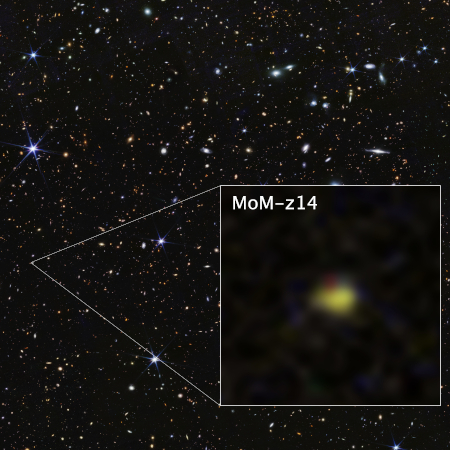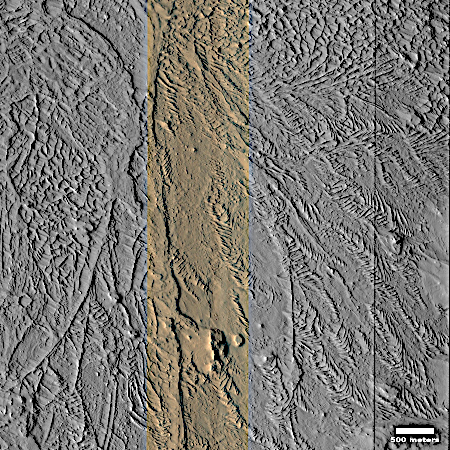Category: Behind The Black
January 30, 2026 Zimmerman/Batchelor podcast
General Electric – Conquest of the Cascades
An evening pause: According to this website, this documentary was “made by General Electric between 1928 and 1929 to commemorate the completion of this monumental [8-mile-long] tunnel which took 1800 workers and three years to construct.”
Three years! Today that’s how long it would take just to get the environmental assessment written and approved.
Hat tip Blair Ivey.
An evening pause: According to this website, this documentary was “made by General Electric between 1928 and 1929 to commemorate the completion of this monumental [8-mile-long] tunnel which took 1800 workers and three years to construct.”
Three years! Today that’s how long it would take just to get the environmental assessment written and approved.
Hat tip Blair Ivey.
January 30, 2026 Quick space links
Courtesy of BtB’s stringer Jay. This post is also an open thread. I welcome my readers to post any comments or additional links relating to any space issues, even if unrelated to the links below.
- PLD provides detailed update on construction of its MIURA 5 rocket
Very impressive video. They continue to appear on schedule for a 2026 launch.
- Astrolab touts its FLEX unmanned demo lunar rover, and its compact configuration during transport
Once on the Moon it will unfold.
- Chinese pseudo-company Ispace admits the first launch of its Hyperbola-3 rocket will be postponed
The tweet touts tests of their strongback, and only mentions the delay as an aside. Jay says the company is now saying it will slip to 2027.
- SpaceX to offer at no cost to all satellite operators the data from its Stargaze system used by Starlink satellites to determine positions precisely
It is doing this to help avoid collisions. Others should do the same, though no one knows what the large Chinese satellite constellation operators will do.
Courtesy of BtB’s stringer Jay. This post is also an open thread. I welcome my readers to post any comments or additional links relating to any space issues, even if unrelated to the links below.
- PLD provides detailed update on construction of its MIURA 5 rocket
Very impressive video. They continue to appear on schedule for a 2026 launch.
- Astrolab touts its FLEX unmanned demo lunar rover, and its compact configuration during transport
Once on the Moon it will unfold.
- Chinese pseudo-company Ispace admits the first launch of its Hyperbola-3 rocket will be postponed
The tweet touts tests of their strongback, and only mentions the delay as an aside. Jay says the company is now saying it will slip to 2027.
- SpaceX to offer at no cost to all satellite operators the data from its Stargaze system used by Starlink satellites to determine positions precisely
It is doing this to help avoid collisions. Others should do the same, though no one knows what the large Chinese satellite constellation operators will do.
Rumors: Musk is considering merging SpaceX with xAI and Tesla
According to a bunch of unconfirmed stories today from different news outlets, Elon Musk is considering merging SpaceX with xAI and Tesla as part of the initial public offering (IPO) of SpaceX that the company is contemplating for sometime this summer.
Reuters reports that Musk wants to merge xAI — his very valuable AI company that has already merged with the company that used to be called Twitter — into SpaceX, his very valuable rocket company. And Bloomberg reports that SpaceX is also considering a merger with Tesla, citing people familiar with the matter.
The SpaceX-xAI tie-up could help Musk build data centers in space. “The combination would bring Musk’s rockets, Starlink satellites, the X social media platform and Grok AI chatbot under one roof,” the Reuters report says. Then again, Reuters also says it doesn’t know several key details about the theoretical deal, including “its primary rationale.”
None of this is confirmed, but Musk has not denied it either. If so, this IPO would be the largest ever in the history of the stock markets, by many magnitudes. As noted at the link, xAI is raising gigantic amounts of capital. SpaceX in turn is expected to do even better in its IPO, as a single entity. Tesla is in far less demand, but this merger could be a way to reshape that company to give it a better future. It has already said it is beginning the transition from electronic cars to robots and other autonomous machines.
Whether such a merger will help SpaceX or Musk in his goal of building a Mars colony remains decidedly uncertain. A publicly traded stock company does not have the freedom of action that SpaceX now has as privately owned company.
According to a bunch of unconfirmed stories today from different news outlets, Elon Musk is considering merging SpaceX with xAI and Tesla as part of the initial public offering (IPO) of SpaceX that the company is contemplating for sometime this summer.
Reuters reports that Musk wants to merge xAI — his very valuable AI company that has already merged with the company that used to be called Twitter — into SpaceX, his very valuable rocket company. And Bloomberg reports that SpaceX is also considering a merger with Tesla, citing people familiar with the matter.
The SpaceX-xAI tie-up could help Musk build data centers in space. “The combination would bring Musk’s rockets, Starlink satellites, the X social media platform and Grok AI chatbot under one roof,” the Reuters report says. Then again, Reuters also says it doesn’t know several key details about the theoretical deal, including “its primary rationale.”
None of this is confirmed, but Musk has not denied it either. If so, this IPO would be the largest ever in the history of the stock markets, by many magnitudes. As noted at the link, xAI is raising gigantic amounts of capital. SpaceX in turn is expected to do even better in its IPO, as a single entity. Tesla is in far less demand, but this merger could be a way to reshape that company to give it a better future. It has already said it is beginning the transition from electronic cars to robots and other autonomous machines.
Whether such a merger will help SpaceX or Musk in his goal of building a Mars colony remains decidedly uncertain. A publicly traded stock company does not have the freedom of action that SpaceX now has as privately owned company.
Russian defunct military satellite breaks up in graveyard orbit
A Russian defunct military geosynchronous satellite that was launched in 2014 and spent a decade spying on other geosynchronous satellites only to be moved to a graveyard orbit in 2025 when its fuel ran out apparently broke apart earlier today.
The Swiss company S2A systems, which specializes in tracking orbital objects, captured the moment the spacecraft began disintegrating. I have embedded that footage below, though it really is far less exciting than it sounds.
The debris poses a very small risk to other geosynchronous satellites, which orbit at about 22,000 miles elevation where there is too little atmosphere to decay orbits. The graveyard orbit is several hundred miles higher.
» Read more
A Russian defunct military geosynchronous satellite that was launched in 2014 and spent a decade spying on other geosynchronous satellites only to be moved to a graveyard orbit in 2025 when its fuel ran out apparently broke apart earlier today.
The Swiss company S2A systems, which specializes in tracking orbital objects, captured the moment the spacecraft began disintegrating. I have embedded that footage below, though it really is far less exciting than it sounds.
The debris poses a very small risk to other geosynchronous satellites, which orbit at about 22,000 miles elevation where there is too little atmosphere to decay orbits. The graveyard orbit is several hundred miles higher.
» Read more
FAA moves forward on its environmental assessment of SpaceX’s proposal to launch Starship/Superheavy from Kennedy Space Center

Proposed Starship/Superheavy launchsites at
Kennedy (LC-39A) and Cape Canaveral (SLC-37)
While NASA has already determined that Starship/Superheavy launches from the Kennedy Space Center in Florida will have no significant impact on the environment, the FAA has not yet completed its own environmental impact statement.
Last week it released a preliminary summary [pdf] of its impact statement, revealing that it has reduced its final options to either approving SpaceX’s request to do as many as 44 launches per year, or to reject any changes — the “no action alternative” — which would block all Starship/Superheavy launches at Kennedy.
The overall tone of this summary suggests strongly that the FAA is almost certainly going to approve SpaceX’s request, allowing as many as 44 launches per year from launchpad LC-39A, as shown on the map to the right. As it notes in describing the “no action alternative”:
SpaceX would not launch Starship-Super Heavy from LC-39A. NASA would not develop, implement, or approve agreements with SpaceX associated with Starship-Super Heavy operations at LC-39A. The No Action Alternative would not meet the purpose and need. [emphasis mine]
In other words, rejecting SpaceX’s request would not fulfill the FAA’s obligation to serve the public. It would also not fulfill the FAA’s obligation to serve a fellow government agency, NASA, which has already approved this SpaceX request in a 2019 environmental assessment.
It appears a final decision by the FAA is imminent. A nice summary of this FAA document can be found here, which notes that if approved, it will give SpaceX license approval to launch Starship/Superheavy as much as 146 times per year, from its launchpads at Boca Chica, Kennedy, and Cape Canaveral. Note too that this FAA assessment is independent of the Air Force’s environment assessment, which has already approved 76 launches per year at the SLC-37 launchpad.

Proposed Starship/Superheavy launchsites at
Kennedy (LC-39A) and Cape Canaveral (SLC-37)
While NASA has already determined that Starship/Superheavy launches from the Kennedy Space Center in Florida will have no significant impact on the environment, the FAA has not yet completed its own environmental impact statement.
Last week it released a preliminary summary [pdf] of its impact statement, revealing that it has reduced its final options to either approving SpaceX’s request to do as many as 44 launches per year, or to reject any changes — the “no action alternative” — which would block all Starship/Superheavy launches at Kennedy.
The overall tone of this summary suggests strongly that the FAA is almost certainly going to approve SpaceX’s request, allowing as many as 44 launches per year from launchpad LC-39A, as shown on the map to the right. As it notes in describing the “no action alternative”:
SpaceX would not launch Starship-Super Heavy from LC-39A. NASA would not develop, implement, or approve agreements with SpaceX associated with Starship-Super Heavy operations at LC-39A. The No Action Alternative would not meet the purpose and need. [emphasis mine]
In other words, rejecting SpaceX’s request would not fulfill the FAA’s obligation to serve the public. It would also not fulfill the FAA’s obligation to serve a fellow government agency, NASA, which has already approved this SpaceX request in a 2019 environmental assessment.
It appears a final decision by the FAA is imminent. A nice summary of this FAA document can be found here, which notes that if approved, it will give SpaceX license approval to launch Starship/Superheavy as much as 146 times per year, from its launchpads at Boca Chica, Kennedy, and Cape Canaveral. Note too that this FAA assessment is independent of the Air Force’s environment assessment, which has already approved 76 launches per year at the SLC-37 launchpad.
On Coast-to-Coast tonight
For those of my readers who might want to try to call in to improve the conversation, I will be on Coast-to-Coast with George Noory tonight for two hours starting at 10 pm (Pacific). The first hour will be devoted to me talking about space news, with Artemis-2 the main topic. The second hour will be for listener questions.
For those of my readers who might want to try to call in to improve the conversation, I will be on Coast-to-Coast with George Noory tonight for two hours starting at 10 pm (Pacific). The first hour will be devoted to me talking about space news, with Artemis-2 the main topic. The second hour will be for listener questions.
Orbex failure occurred partly because UK government withheld promised funding
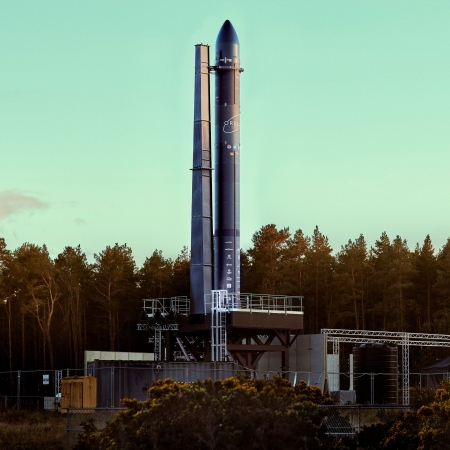
The prototype of Orbex’s never-launched Prime rocket,
on the launchpad in 2022
It appears the government of the United Kingdom contributed to the bankruptcy and sale of the British rocket startup Orbex in more than one way.
Orbex had hoped to do its first launch from the proposed Sutherland spaceport on the north coast of Scotland in 2022, but was blocked for four years because of red tape. First, the UK’s Civil Aviation Authority would not issue the spaceport and launch licenses. Second, local opposition delayed approvals as well. Those delays ate into the company’s resources, until it became entirely dependent on grants from the UK government (some through the European Space Agency) to keep it afloat.
Orbex’s problems were further compounded when it became clear in 2024 that the Sutherland spaceport would never get clearance. Orbex then switched to the Saxavord spaceport in the Shetland Islands, but this forced more delays because the company had no facilities there. It had already spent a fortune building everything for Sutherland.
A new report today says that it was finally forced to shut down and sell its assets to the French startup The Exploration Company because the UK government had withheld some of that promised funding.
News of the potential sale came just a month after a European Space Agency document confirmed that €112 million of €144 million UK government funding, earmarked for the European Launcher Challenge (ELC) scheme, was still “to be distributed”.
As a result, Orbex received just €34.9 million from the scheme – one-fifth of the €169 million awarded to each of its rivals by European governments.
That shortfall equates to about $160 million, a substantial amount of cash. While it is perfectly reasonable for the UK government to withheld these funds if it thinks the money would be badly spent, none of this government funding would not have been necessary at all if the UK government had simply issued the launch permits in a timely manner, allowing Orbex to launch and earn revenue.
As I noted early, congratulations to the United Kingdom, the place where rocket companies go to die! This is now the second such company killed by UK red tape and government incompetence, the first being Virgin Orbit.

The prototype of Orbex’s never-launched Prime rocket,
on the launchpad in 2022
It appears the government of the United Kingdom contributed to the bankruptcy and sale of the British rocket startup Orbex in more than one way.
Orbex had hoped to do its first launch from the proposed Sutherland spaceport on the north coast of Scotland in 2022, but was blocked for four years because of red tape. First, the UK’s Civil Aviation Authority would not issue the spaceport and launch licenses. Second, local opposition delayed approvals as well. Those delays ate into the company’s resources, until it became entirely dependent on grants from the UK government (some through the European Space Agency) to keep it afloat.
Orbex’s problems were further compounded when it became clear in 2024 that the Sutherland spaceport would never get clearance. Orbex then switched to the Saxavord spaceport in the Shetland Islands, but this forced more delays because the company had no facilities there. It had already spent a fortune building everything for Sutherland.
A new report today says that it was finally forced to shut down and sell its assets to the French startup The Exploration Company because the UK government had withheld some of that promised funding.
News of the potential sale came just a month after a European Space Agency document confirmed that €112 million of €144 million UK government funding, earmarked for the European Launcher Challenge (ELC) scheme, was still “to be distributed”.
As a result, Orbex received just €34.9 million from the scheme – one-fifth of the €169 million awarded to each of its rivals by European governments.
That shortfall equates to about $160 million, a substantial amount of cash. While it is perfectly reasonable for the UK government to withheld these funds if it thinks the money would be badly spent, none of this government funding would not have been necessary at all if the UK government had simply issued the launch permits in a timely manner, allowing Orbex to launch and earn revenue.
As I noted early, congratulations to the United Kingdom, the place where rocket companies go to die! This is now the second such company killed by UK red tape and government incompetence, the first being Virgin Orbit.
Russian official says Soyuz launchpad repair likely delayed
According to the Russian official in charge of ground infrastructure at Roscosmos, the repair of Russia’s only Soyuz launchpad for launching Progress and Soyuz capsules to ISS might not be completed by late March, as Roscosmos has previously promised.
It appears the winter weather at Baikonur is causing issues. In addition:
Barmin explained that the new service platform had to be assembled from components manufactured at different times and sometimes mismatching each other, requiring on-site modifications. For example, the core of the spare platform was manufactured in 1977 in accordance with a different set of blueprints for a planned-but-never-implemented refurbishment of another Soyuz pad, Barmin said. When it was shipped from an arsenal in the city of Tambov to Baikonur, the set of hardware was incomplete, requiring it to be complemented with parts from other sources and with newly manufactured elements.
It also appears the Russian government is going to make scapegoats of the workers who handled the launch platform during the November 2025 launch. It has placed them under criminal investigation. The managers, whom according to one report demanded the launch take place even though these workers could not get the platform properly fastened in place, appear to have been cleared of wrong-doing.
Until this pad is repaired, Russia has no way to launch any manned missions. Nor can it send cargo to ISS.
The decision to scapegoat the workers will further hinder work, as it will certainly damage morale. Such an approach also helps explain why there has been several cases of sabotage of Soyuz and Progress capsules while they are being prepped for launch.
According to the Russian official in charge of ground infrastructure at Roscosmos, the repair of Russia’s only Soyuz launchpad for launching Progress and Soyuz capsules to ISS might not be completed by late March, as Roscosmos has previously promised.
It appears the winter weather at Baikonur is causing issues. In addition:
Barmin explained that the new service platform had to be assembled from components manufactured at different times and sometimes mismatching each other, requiring on-site modifications. For example, the core of the spare platform was manufactured in 1977 in accordance with a different set of blueprints for a planned-but-never-implemented refurbishment of another Soyuz pad, Barmin said. When it was shipped from an arsenal in the city of Tambov to Baikonur, the set of hardware was incomplete, requiring it to be complemented with parts from other sources and with newly manufactured elements.
It also appears the Russian government is going to make scapegoats of the workers who handled the launch platform during the November 2025 launch. It has placed them under criminal investigation. The managers, whom according to one report demanded the launch take place even though these workers could not get the platform properly fastened in place, appear to have been cleared of wrong-doing.
Until this pad is repaired, Russia has no way to launch any manned missions. Nor can it send cargo to ISS.
The decision to scapegoat the workers will further hinder work, as it will certainly damage morale. Such an approach also helps explain why there has been several cases of sabotage of Soyuz and Progress capsules while they are being prepped for launch.
NASA delays Artemis-2 wet dress rehearsal countdown due to weather
NASA today announced it is delaying until February 2, 2026 the wet dress rehearsal countdown of its Artemis-2 mission due to weather concerns.
NASA is targeting Monday, Feb. 2, as the tanking day for the upcoming Artemis II wet dress rehearsal at the agency’s Kennedy Space Center in Florida, as a result of weather. With this change, the first potential opportunity to launch is no earlier than Sunday, Feb. 8.
Over the past several days, engineers have been closely monitoring conditions as cold weather and winds move through Florida. Managers have assessed hardware capabilities against the projected forecast given the rare arctic outbreak affecting the state and decided to change the timeline. Teams and preparations at the launch pad remain ready for the wet dress rehearsal. However, adjusting the timeline for the test will position NASA for success during the rehearsal, as the expected weather this weekend would violate launch conditions.
I had previously said this dress rehearsal countdown would include the astronauts inside Orion. This was incorrect. The astronauts are in quarantine in preparation for the actual mission. Orion will be unmanned during the rehearsal countdown.
NASA today announced it is delaying until February 2, 2026 the wet dress rehearsal countdown of its Artemis-2 mission due to weather concerns.
NASA is targeting Monday, Feb. 2, as the tanking day for the upcoming Artemis II wet dress rehearsal at the agency’s Kennedy Space Center in Florida, as a result of weather. With this change, the first potential opportunity to launch is no earlier than Sunday, Feb. 8.
Over the past several days, engineers have been closely monitoring conditions as cold weather and winds move through Florida. Managers have assessed hardware capabilities against the projected forecast given the rare arctic outbreak affecting the state and decided to change the timeline. Teams and preparations at the launch pad remain ready for the wet dress rehearsal. However, adjusting the timeline for the test will position NASA for success during the rehearsal, as the expected weather this weekend would violate launch conditions.
I had previously said this dress rehearsal countdown would include the astronauts inside Orion. This was incorrect. The astronauts are in quarantine in preparation for the actual mission. Orion will be unmanned during the rehearsal countdown.
Two American launches this evening
Two American companies, Rocket Lab and SpaceX, successfully completed launches during the evening of January 29-30.
First, Rocket Lab today (January 30th in New Zealand) placed a South Korean test smallsat, its Electron rocket lifting off from one of its two launchpads in New Zealand. The satellite is the first of a planned mass-produced constellation to provide precise observations of the Korean peninsula.
Next, SpaceX placed another 29 Starlink satellites into orbit, its Falcon 9 rocket lifting off from Cape Canaveral in the early morning hours. The first stage completed fifth flight, landing on a drone ship in the Atlantic.
The 2026 launch race:
13 SpaceX
5 China
2 Rocket Lab
Two American companies, Rocket Lab and SpaceX, successfully completed launches during the evening of January 29-30.
First, Rocket Lab today (January 30th in New Zealand) placed a South Korean test smallsat, its Electron rocket lifting off from one of its two launchpads in New Zealand. The satellite is the first of a planned mass-produced constellation to provide precise observations of the Korean peninsula.
Next, SpaceX placed another 29 Starlink satellites into orbit, its Falcon 9 rocket lifting off from Cape Canaveral in the early morning hours. The first stage completed fifth flight, landing on a drone ship in the Atlantic.
The 2026 launch race:
13 SpaceX
5 China
2 Rocket Lab
Varda capsule successfully returns to Earth after nine weeks in orbit

Varda’s W-5 capsule after landing today
The orbiting capsule startup Varda today successfully returned to Earth its W-5 capsule after nine weeks in orbit, landing in Australia’s Koonibba Test Range, operated by the commercial spaceport startup Southern Launch.
W-5 launched in November 2025, Varda’s fourth launch last year, and spent 9 weeks in orbit. The mission was funded through the Prometheus program, a partnership between the Air Force Research Laboratory (AFRL) and commercial space entities.
…The W-5 mission is the first reentry of Varda’s in-house developed satellite bus, designed specifically to meet the rigorous demands of both long-duration orbital pharmaceutical processing and high-velocity reentry. The W-5 flight was also equipped with an in-house manufactured heatshield, made in Varda’s El Segundo headquarters from C-PICA (Conformal Phenolic Impregnated Carbon Ablator).
…The W-5 capsule carried a specialized payload for the U.S. Navy, focusing on data collection during reentry. Varda’s ability to provide fixed-cost, routine reentry offers the Department of War a unique, cost-effective platform for iterative testing of hypersonic flight characteristics. The Varda capsules endure extreme environments when they reenter at speeds exceeding Mach 25.
While previous capsules had used their time in orbit testing the manufacture of products like pharmaceuticals, this mission was used by the Air Force to test hypersonic missile sensors and equipment during the high-speed re-entry.
Varda’s earlier capsules had used a satellite bus (that provides power and control) built by Rocket Lab. With this capsule it is now capable of building its entire capsule. It is also ramping up its launch pace, with plans to launch as many as 20 capsules through ’28.

Varda’s W-5 capsule after landing today
The orbiting capsule startup Varda today successfully returned to Earth its W-5 capsule after nine weeks in orbit, landing in Australia’s Koonibba Test Range, operated by the commercial spaceport startup Southern Launch.
W-5 launched in November 2025, Varda’s fourth launch last year, and spent 9 weeks in orbit. The mission was funded through the Prometheus program, a partnership between the Air Force Research Laboratory (AFRL) and commercial space entities.
…The W-5 mission is the first reentry of Varda’s in-house developed satellite bus, designed specifically to meet the rigorous demands of both long-duration orbital pharmaceutical processing and high-velocity reentry. The W-5 flight was also equipped with an in-house manufactured heatshield, made in Varda’s El Segundo headquarters from C-PICA (Conformal Phenolic Impregnated Carbon Ablator).
…The W-5 capsule carried a specialized payload for the U.S. Navy, focusing on data collection during reentry. Varda’s ability to provide fixed-cost, routine reentry offers the Department of War a unique, cost-effective platform for iterative testing of hypersonic flight characteristics. The Varda capsules endure extreme environments when they reenter at speeds exceeding Mach 25.
While previous capsules had used their time in orbit testing the manufacture of products like pharmaceuticals, this mission was used by the Air Force to test hypersonic missile sensors and equipment during the high-speed re-entry.
Varda’s earlier capsules had used a satellite bus (that provides power and control) built by Rocket Lab. With this capsule it is now capable of building its entire capsule. It is also ramping up its launch pace, with plans to launch as many as 20 capsules through ’28.
Doris Day – Shaking the Blues Away
January 29, 2026 Quick space links
Courtesy of BtB’s stringer Jay. This post is also an open thread. I welcome my readers to post any comments or additional links relating to any space issues, even if unrelated to the links below.
- Blue Origin successfully completes soft capture test of docking system to be used on its manned lunar lander and Orbital Reef space station
As far as I know, this could be the first real hardware Blue Origin has built for Orbital Reef.
- Declassifying JUMPSEAT, a surveillance satellite program from the ’70s and ’80s
The satellites used a high elliptical orbit that favored high latitude observations, excellent for monitoring Soviet military operations.
- I bought “Remove Before Flight” tags on eBay in 2010—it turns out they’re from Challenger’s final flight
Very interesting story about collecting miscellaneous space memorabilia that turns out to come from a very significant space mission.
Courtesy of BtB’s stringer Jay. This post is also an open thread. I welcome my readers to post any comments or additional links relating to any space issues, even if unrelated to the links below.
- Blue Origin successfully completes soft capture test of docking system to be used on its manned lunar lander and Orbital Reef space station
As far as I know, this could be the first real hardware Blue Origin has built for Orbital Reef.
- Declassifying JUMPSEAT, a surveillance satellite program from the ’70s and ’80s
The satellites used a high elliptical orbit that favored high latitude observations, excellent for monitoring Soviet military operations.
- I bought “Remove Before Flight” tags on eBay in 2010—it turns out they’re from Challenger’s final flight
Very interesting story about collecting miscellaneous space memorabilia that turns out to come from a very significant space mission.
Pluto’s mountains of ice surrounded by a sea of frozen nitrogen
Cool image time! Though we only have a limited archive of high resolution pictures of Pluto that were taken when New Horizons did its close fly-by of the planet in July 2015, it is worthwhile sometimes to take a second look at some of those images. The picture to the right, cropped and annotated to post here, was taken during that July 14, 2015 fly-by, and shows a mountainous region dubbed Al-Idrisi Montes on the shore of a white frozen ocean. The red dotted line indicates a large trench that separates the Al-Idrisi mountains from the mountainous region to the west.
Sounds similar to an arctic shoreline here on Earth, doesn’t it? Not in the least. Those mountains, ranging from 600 to 9,000 feet high, are made of frozen ice, which on Pluto are as hard as granite due to the endless cold. And the white frozen ocean is frozen nitrogen, broken into polygon shaped blocks. Even stranger: those ice mountains might even be floating in that nitrogen sea! A paper from 2019 [pdf] looked at the New Horizons data and concluded as follows:
Evidence suggests that the Al-Idrisi mountains may have been uplifted by the formation of
the western trench feature. Solid state convection appears to be our best supposition as to how the Al-Idrisi Montes reached their heights.
In other words, as that large trench/depression formed, convection (the bubbles you see when you simmer tomato sauce) pushed these mountains of ice upward to float above the “sea level” of that nitrogen sea.
At least, that’s one hypothesis. The scientists who wrote this paper admit their “our hypothesis still remains in need of study and this trench-mountain system warrants serious further research.” In other words, we simply don’t know enough to have a definitive understanding of the geology of this extremely alien planet.
Cool image time! Though we only have a limited archive of high resolution pictures of Pluto that were taken when New Horizons did its close fly-by of the planet in July 2015, it is worthwhile sometimes to take a second look at some of those images. The picture to the right, cropped and annotated to post here, was taken during that July 14, 2015 fly-by, and shows a mountainous region dubbed Al-Idrisi Montes on the shore of a white frozen ocean. The red dotted line indicates a large trench that separates the Al-Idrisi mountains from the mountainous region to the west.
Sounds similar to an arctic shoreline here on Earth, doesn’t it? Not in the least. Those mountains, ranging from 600 to 9,000 feet high, are made of frozen ice, which on Pluto are as hard as granite due to the endless cold. And the white frozen ocean is frozen nitrogen, broken into polygon shaped blocks. Even stranger: those ice mountains might even be floating in that nitrogen sea! A paper from 2019 [pdf] looked at the New Horizons data and concluded as follows:
Evidence suggests that the Al-Idrisi mountains may have been uplifted by the formation of
the western trench feature. Solid state convection appears to be our best supposition as to how the Al-Idrisi Montes reached their heights.
In other words, as that large trench/depression formed, convection (the bubbles you see when you simmer tomato sauce) pushed these mountains of ice upward to float above the “sea level” of that nitrogen sea.
At least, that’s one hypothesis. The scientists who wrote this paper admit their “our hypothesis still remains in need of study and this trench-mountain system warrants serious further research.” In other words, we simply don’t know enough to have a definitive understanding of the geology of this extremely alien planet.
SpaceX launches 25 more Starlink satellites
The beat goes on: SpaceX today successfully launched another 25 Starlink satellites, its Falcon 9 rocket lifting off from Vandenberg Space Force Base in California.
The first stage completed its 19th flight, landing on a drone ship in the Pacific.
It also appears on this launch SpaceX placed its 11,000th Starlink satellite into orbit. The actual number of satellites in orbit presently is much less than this, as SpaceX retires older Starlink satellites on a regularly basis. Nonetheless, the overall number is impressive, in that it was accomplished in less than seven years.
The 2026 launch race:
12 SpaceX
5 China
1 Rocket Lab
Though it is still early in 2026, note that SpaceX has now launched twice as much as the rest of the world, combined.
The beat goes on: SpaceX today successfully launched another 25 Starlink satellites, its Falcon 9 rocket lifting off from Vandenberg Space Force Base in California.
The first stage completed its 19th flight, landing on a drone ship in the Pacific.
It also appears on this launch SpaceX placed its 11,000th Starlink satellite into orbit. The actual number of satellites in orbit presently is much less than this, as SpaceX retires older Starlink satellites on a regularly basis. Nonetheless, the overall number is impressive, in that it was accomplished in less than seven years.
The 2026 launch race:
12 SpaceX
5 China
1 Rocket Lab
Though it is still early in 2026, note that SpaceX has now launched twice as much as the rest of the world, combined.
Artemis-2 proves NASA learned nothing from the Challenger and Columbia failures

NASA: an agency that still avoids reality
Our bankrupt new media continues to fail us. NASA is about to send four astronauts on a ten-day mission around the Moon in a capsule with questionable engineering, and that media continues to ignore the problem. Mainstream news outlets continue to describe the mission in glowing terms, consistently ignoring that questionable engineering. In some cases the stories even make believe NASA has fixed the problem, when it has not.
The most ridiculous example is an article yesterday from an Orlando outlet, Spectrum New 13: “How the lessons learned from the Challenger disaster apply to Artemis rockets”. It focuses entirely on the O-ring problem that destroyed Challenger, noting repeatedly that NASA has fixed this issue in its SLS rocket.
Of course it has. That’s the last war, long over. Engineers fixed this issue almost four decades ago. The article however dismisses entirely the new engineering concern of today, Orion’s heat shield, which did not work as expected during its own test flight in space in 2022. It covers this issue with this single two-sentence paragraph:
However, during re-entry, it broke up into chunks instead of burning away. This issue pushed back the Artemis II and III missions, but NASA has stated it has resolved the problem.
NASA however has not resolved the problem. It is using the same heat shield now on this manned mission, and really has no reason to assume it will work any better, even if the agency has changed the re-entry flight path in an effort to mitigate the heat shield’s questionable design.
You see, NASA with Artemis-2 is doing the exact same thing it did prior to both the Challenger and Columbia accidents. » Read more
January 28, 2026 Zimmerman/Batchelor podcast
The Warning – Dust To Dust/Dull Knives
An evening pause: In 2017 I posted an evening pause of this band, when Daniela (on guitar) was 14 years old, Paulina (on drums) was 12 years old, and Alejandra (on bass guitar) was 9 yrs old. Today’s evening pause is from their 2023 tour in Mexico (where they are from), celebrating the band’s tenth anniversary. To put it mildly, they are a bit older.
Hat tip Matt Falk, who adds, “They are all adults now who’ve become one of the best live rock bands playing today, while still maintaining complete control of their career (a feat in itself).”
Saturn’s rings with two of its moons perfectly aligned
Cool image time! Rather than posting another Mars orbital image, I decided today to delve into the archive of pictures taken by the Cassini orbiter during the thirteen years it circled Saturn, from 2004 until 2017. The picture to the right, cropped to post here, was released on December 14, 2015, and is just one example of the many breath-taking photographs that the Cassini science team took during that mission. From the caption:
Like a cosmic bull’s-eye, Enceladus and Tethys line up almost perfectly for Cassini’s cameras. Since the two moons are not only aligned, but also at relatively similar distances from Cassini, the apparent sizes in this image are a good approximation of the relative sizes of Enceladus (313 miles across) and Tethys (660 miles across).
This view looks toward the un-illuminated side of the rings from 0.34 degrees below the ring plane. The image was taken in red light with the Cassini spacecraft narrow-angle camera on Sept. 24, 2015.
The image was obtained at a distance of approximately 1.3 million miles from Enceladus. Image scale on Enceladus is 7 miles per pixel. Tethys was at a distance of 1.6 million miles with a pixel scale of 10 miles per pixel.
Enceladus is in the foreground, and is the planet that has what scientists have labeled tiger stripe fractures that vent water and other material, including carbon molecules.
Cool image time! Rather than posting another Mars orbital image, I decided today to delve into the archive of pictures taken by the Cassini orbiter during the thirteen years it circled Saturn, from 2004 until 2017. The picture to the right, cropped to post here, was released on December 14, 2015, and is just one example of the many breath-taking photographs that the Cassini science team took during that mission. From the caption:
Like a cosmic bull’s-eye, Enceladus and Tethys line up almost perfectly for Cassini’s cameras. Since the two moons are not only aligned, but also at relatively similar distances from Cassini, the apparent sizes in this image are a good approximation of the relative sizes of Enceladus (313 miles across) and Tethys (660 miles across).
This view looks toward the un-illuminated side of the rings from 0.34 degrees below the ring plane. The image was taken in red light with the Cassini spacecraft narrow-angle camera on Sept. 24, 2015.
The image was obtained at a distance of approximately 1.3 million miles from Enceladus. Image scale on Enceladus is 7 miles per pixel. Tethys was at a distance of 1.6 million miles with a pixel scale of 10 miles per pixel.
Enceladus is in the foreground, and is the planet that has what scientists have labeled tiger stripe fractures that vent water and other material, including carbon molecules.
Astronomers discover a “surprisingly mature” cluster of galaxies in early universe
The uncertainty of science strikes again! Astronomers using both the Webb Space Telescope and the Chandra X-ray Observatory now think they have discovered a just-forming protocluster of galaxies only one billion years after the Big Bang, when such galaxy clusters should not yet exist.
You can read their paper here [pdf]. The image to the right, cropped and reduced to post here, shows the Webb infrared data as the background of stars and galaxies, with the galaxies thought to be part of this protocluster circled. The blue cloud is Chandra’s X-ray data. From the press release:
The Chandra and Webb data reveal that JADES-ID1 contains the two properties that confirm the presence of a protocluster: a large number of galaxies held together by gravity (Webb sees at least 66 potential members) that are also sitting in a huge cloud of hot gas (detected by Chandra). As a galaxy cluster forms, gas falls inward and is heated by shock waves, reaching temperatures of millions of degrees and glowing in X-rays.
What makes JADES-ID1 exceptional is the remarkably early time when it appears in cosmic history. Most models of the universe predict that there likely would not be enough time and a large enough density of galaxies for a protocluster of this size to form only a billion years after the big bang. The previous record holder for a protocluster with X-ray emission is seen much later, about three billion years after the big bang.
It increasingly appears that there are aspects of the universe we simply do not yet understand, which in turn make our theories of its birth and formation either incomplete or invalid. Those theories might be right in principle, but the data suggests they are wrong in detail.
The uncertainty of science strikes again! Astronomers using both the Webb Space Telescope and the Chandra X-ray Observatory now think they have discovered a just-forming protocluster of galaxies only one billion years after the Big Bang, when such galaxy clusters should not yet exist.
You can read their paper here [pdf]. The image to the right, cropped and reduced to post here, shows the Webb infrared data as the background of stars and galaxies, with the galaxies thought to be part of this protocluster circled. The blue cloud is Chandra’s X-ray data. From the press release:
The Chandra and Webb data reveal that JADES-ID1 contains the two properties that confirm the presence of a protocluster: a large number of galaxies held together by gravity (Webb sees at least 66 potential members) that are also sitting in a huge cloud of hot gas (detected by Chandra). As a galaxy cluster forms, gas falls inward and is heated by shock waves, reaching temperatures of millions of degrees and glowing in X-rays.
What makes JADES-ID1 exceptional is the remarkably early time when it appears in cosmic history. Most models of the universe predict that there likely would not be enough time and a large enough density of galaxies for a protocluster of this size to form only a billion years after the big bang. The previous record holder for a protocluster with X-ray emission is seen much later, about three billion years after the big bang.
It increasingly appears that there are aspects of the universe we simply do not yet understand, which in turn make our theories of its birth and formation either incomplete or invalid. Those theories might be right in principle, but the data suggests they are wrong in detail.
New ground-based space antenna startup raises $100 million and wins $50 million Space Force contract
In a clear sign that the space industry in space now requires increased support on the ground, the ground-based space antenna startup, Northwood Space, this week announced it has raised $100 million in private investment capital even as it simultaneously won a $50 million Space Force contract.
The funding round, announced January 27, was led by Washington Harbour Partners and co-led by Andreessen Horowitz. The financing came on the heels of a $49.8 million contract that was signed with the United States Space Force to help improve the “satellite control network,” which “handles a huge variety of consequential space missions for our government,” said Bridgit Mendler, founder and CEO.
Northwood is an end-to-end ground infrastructure provider for space missions. In other words, it manufactures and deploys antennae systems, which are smaller than older models, that allow Earth to communicate with satellites in space.
Northwood was only formed three years ago, so its success is an clear indication that there is a real need for more and better ground-based facilities.
In a clear sign that the space industry in space now requires increased support on the ground, the ground-based space antenna startup, Northwood Space, this week announced it has raised $100 million in private investment capital even as it simultaneously won a $50 million Space Force contract.
The funding round, announced January 27, was led by Washington Harbour Partners and co-led by Andreessen Horowitz. The financing came on the heels of a $49.8 million contract that was signed with the United States Space Force to help improve the “satellite control network,” which “handles a huge variety of consequential space missions for our government,” said Bridgit Mendler, founder and CEO.
Northwood is an end-to-end ground infrastructure provider for space missions. In other words, it manufactures and deploys antennae systems, which are smaller than older models, that allow Earth to communicate with satellites in space.
Northwood was only formed three years ago, so its success is an clear indication that there is a real need for more and better ground-based facilities.
German government hires German startup Polaris Spaceplanes to build reusable two-stage hypersonic plane
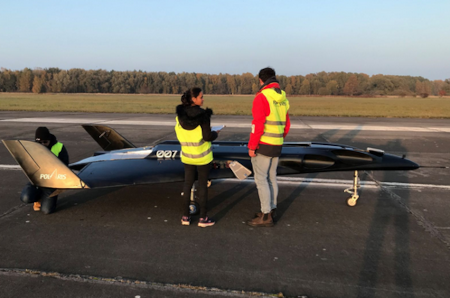
Mira-II prototype following first flight using
aerospike engine in October 2024.
The German government yesterday awarded a contract to the German startup Polaris Spaceplanes to build and fly a reusable two-stage hypersonic plane by 2027.
On 27 January, POLARIS Spaceplanes announced that it had been awarded a contract by the Federal Office of Bundeswehr Equipment, Information Technology and In-Service Support (BAAINBw) to build a fully reusable, horizontal take-off, two-stage hypersonic vehicle. The primary application of the Hypersonic Test and Experimentation Vehicle (HYTEV) will be as a hypersonic testbed for scientific and defence-related research. A variant of the vehicle with an expendable upper stage will also be capable of deploying small satellites into low Earth orbit.
According to the company, the HYTEV will be roughly the size and take-off mass of a fighter jet. The main stage will be powered by two turbofans and one of the company’s in-house developed aerospike rocket engines. The turbofans will be used for take-off and landing, and the rocket engine will accelerate the vehicle before upper-stage deployment. The upper stage will be entirely rocket-powered, with imagery accompanying the announcement appearing to show a more conventional rocket engine configuration compared with the aerospike engine equipped to the main stage. After completing its mission, it will likely be recovered under controlled glide conditions or potentially by a parachute or parafoil.
This deal appears to be an upgrade to a February 2025 German government deal with Polaris. It also follows Polaris’s successful use of an aerospike engine on a prototype test flight in 2024. While the company has shown some success, doing more than a dozen test flights with small scale prototypes (as shown in the image to the right), this program and schedule still seems quite ambitious.

Mira-II prototype following first flight using
aerospike engine in October 2024.
The German government yesterday awarded a contract to the German startup Polaris Spaceplanes to build and fly a reusable two-stage hypersonic plane by 2027.
On 27 January, POLARIS Spaceplanes announced that it had been awarded a contract by the Federal Office of Bundeswehr Equipment, Information Technology and In-Service Support (BAAINBw) to build a fully reusable, horizontal take-off, two-stage hypersonic vehicle. The primary application of the Hypersonic Test and Experimentation Vehicle (HYTEV) will be as a hypersonic testbed for scientific and defence-related research. A variant of the vehicle with an expendable upper stage will also be capable of deploying small satellites into low Earth orbit.
According to the company, the HYTEV will be roughly the size and take-off mass of a fighter jet. The main stage will be powered by two turbofans and one of the company’s in-house developed aerospike rocket engines. The turbofans will be used for take-off and landing, and the rocket engine will accelerate the vehicle before upper-stage deployment. The upper stage will be entirely rocket-powered, with imagery accompanying the announcement appearing to show a more conventional rocket engine configuration compared with the aerospike engine equipped to the main stage. After completing its mission, it will likely be recovered under controlled glide conditions or potentially by a parachute or parafoil.
This deal appears to be an upgrade to a February 2025 German government deal with Polaris. It also follows Polaris’s successful use of an aerospike engine on a prototype test flight in 2024. While the company has shown some success, doing more than a dozen test flights with small scale prototypes (as shown in the image to the right), this program and schedule still seems quite ambitious.
Ariane-6 gets a new government launch contract

The European Space Agency, one European
agency among many
The government rocket of the European Space Agency (ESA), the Ariane-6, yesterday won a new launch contract to place a pair of Galileo GPS-type satellites into orbit for the European Union (EU).
Arianespace announced today at the European Space Conference in Brussels the signature of the launch contract with the European Union Agency for the Space Programme (EUSPA), under the delegation of the European Commission, to orbit the second pair of second-generation satellites of the Galileo constellation (Galileo L18) on board an Ariane 6 launcher. With this signature, the European Commission and the EUSPA are formalizing the launch contract of Galileo L18, following the initial mission allocation to Arianespace made in April 2024.
All told this will be Ariane-6’s fifth launch of GPS-type satellites for the EU, which appears committed to Ariane-6, even though this expendable rocket costs much more than SpaceX’s Falcon 9, in order to promote European sovereignty. Eventually Europe will develop more cost effective private rockets (in about a decade), but until then its access to space will be limited by cost.
And the extra cost is not simply the expendable nature of Ariane-6. Note also the many layers of bureaucracy listed in the quote above. For the European Union there the European Union Agency for Space Programme, working under the supervision of the EU’s European Commission. It signed a deal with Arianespace, which represents the European Space Agency as its commercial rocket division.
That’s four different bureaucracies, two within the European Union and two more related to Europe’s space effort. Each adds cost to the launch, as well as the need for complex negotiations that delay any deal.
Not

The European Space Agency, one European
agency among many
The government rocket of the European Space Agency (ESA), the Ariane-6, yesterday won a new launch contract to place a pair of Galileo GPS-type satellites into orbit for the European Union (EU).
Arianespace announced today at the European Space Conference in Brussels the signature of the launch contract with the European Union Agency for the Space Programme (EUSPA), under the delegation of the European Commission, to orbit the second pair of second-generation satellites of the Galileo constellation (Galileo L18) on board an Ariane 6 launcher. With this signature, the European Commission and the EUSPA are formalizing the launch contract of Galileo L18, following the initial mission allocation to Arianespace made in April 2024.
All told this will be Ariane-6’s fifth launch of GPS-type satellites for the EU, which appears committed to Ariane-6, even though this expendable rocket costs much more than SpaceX’s Falcon 9, in order to promote European sovereignty. Eventually Europe will develop more cost effective private rockets (in about a decade), but until then its access to space will be limited by cost.
And the extra cost is not simply the expendable nature of Ariane-6. Note also the many layers of bureaucracy listed in the quote above. For the European Union there the European Union Agency for Space Programme, working under the supervision of the EU’s European Commission. It signed a deal with Arianespace, which represents the European Space Agency as its commercial rocket division.
That’s four different bureaucracies, two within the European Union and two more related to Europe’s space effort. Each adds cost to the launch, as well as the need for complex negotiations that delay any deal.
Not
Webb finds another unexpected galaxy in the very early universe
The uncertainty of science: Using the Webb Space Telescope, astronomers have discovered another galaxy in the very early universe that appears too bright and developed for it to even exist so soon after the Big Bang.
MoM-z14 is one of a growing group of surprisingly bright galaxies in the early universe – 100 times more than theoretical studies predicted before the launch of Webb, according to the research team. “There is a growing chasm between theory and observation related to the early universe, which presents compelling questions to be explored going forward,” said Jacob Shen, a postdoctoral researcher at MIT and a member of the research team.
…With galaxy MoM-z14 existing only 280 million years after the big bang, there was not enough time for generations of stars to produce such high amounts of nitrogen in the way that astronomers would expect. One theory the researchers note is that the dense environment of the early universe resulted in supermassive stars capable of producing more nitrogen than any stars observed in the local universe.
All theories about the Big Bang and the early universe did not predict the existence of this galaxy, or a bunch of others that Webb has now detected.
The false color infrared Webb image is to the right, cropped and reduced to post here. The full image covered a much larger area, so this tiny galaxy was not easy to find. Scientists identified it by the very high red shift of its light, due to the expansion of the universe and it being so far away. That expansion away from us causes the wavelengths of its light to stretch into the infrared so that only Webb can see it.
The uncertainty of science: Using the Webb Space Telescope, astronomers have discovered another galaxy in the very early universe that appears too bright and developed for it to even exist so soon after the Big Bang.
MoM-z14 is one of a growing group of surprisingly bright galaxies in the early universe – 100 times more than theoretical studies predicted before the launch of Webb, according to the research team. “There is a growing chasm between theory and observation related to the early universe, which presents compelling questions to be explored going forward,” said Jacob Shen, a postdoctoral researcher at MIT and a member of the research team.
…With galaxy MoM-z14 existing only 280 million years after the big bang, there was not enough time for generations of stars to produce such high amounts of nitrogen in the way that astronomers would expect. One theory the researchers note is that the dense environment of the early universe resulted in supermassive stars capable of producing more nitrogen than any stars observed in the local universe.
All theories about the Big Bang and the early universe did not predict the existence of this galaxy, or a bunch of others that Webb has now detected.
The false color infrared Webb image is to the right, cropped and reduced to post here. The full image covered a much larger area, so this tiny galaxy was not easy to find. Scientists identified it by the very high red shift of its light, due to the expansion of the universe and it being so far away. That expansion away from us causes the wavelengths of its light to stretch into the infrared so that only Webb can see it.
SpaceX launches GPS satellite
SpaceX last night successfully launched a GPS satellite for the Space Force, its Falcon 9 rocket lifting off from Cape Canaveral in Florida.
The Space Force had originally hired ULA to launch this satellite, but two weeks ago it switched launch provider to SpaceX. Apparently the military wanted this satellite launched now, and for some reason ULA could not do it, even though the Vulcan rocket was supposedly ready for launch.
The first stage completed its fifth flight, landing on a drone ship in the Atlantic. The two fairing halves each completed their second flight.
The 2026 launch race:
11 SpaceX
5 China
1 Rocket Lab
SpaceX last night successfully launched a GPS satellite for the Space Force, its Falcon 9 rocket lifting off from Cape Canaveral in Florida.
The Space Force had originally hired ULA to launch this satellite, but two weeks ago it switched launch provider to SpaceX. Apparently the military wanted this satellite launched now, and for some reason ULA could not do it, even though the Vulcan rocket was supposedly ready for launch.
The first stage completed its fifth flight, landing on a drone ship in the Atlantic. The two fairing halves each completed their second flight.
The 2026 launch race:
11 SpaceX
5 China
1 Rocket Lab
Emmylou Harris – Tulsa Queen
Scientists produce new estimate of the thickness of Europa’s icy crust
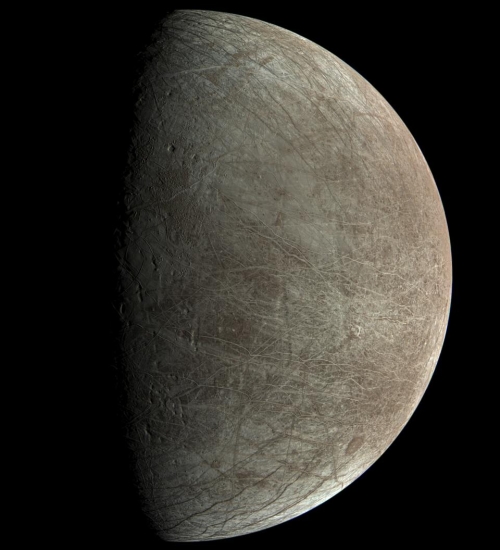
Europa in true color, taken by Juno during that
September 2022 fly-by. Click for full image.
Using data produced by Juno during a 2022 close-fly of Jupiter’s moon Europa, scientists have made a new estimate of the thickness of Europa’s icy crust, approximately 18 miles thick with a 6-mile margin of error.
In other words, their estimate could be as small as 12 miles thick, or as large as 24 miles thick.
You can read their paper here. From their abstract:
For the idealized case of pure water ice, the data are consistent with the existence of a thermally conductive ice shell with a thickness of 29 ± 10 km [18 ± 6 miles] and with the presence of cracks, pores or other scatterers extending to depths of hundreds of metres below the surface with a characteristic size smaller than a few centimetres in radius. An ice-shell salinity of 15 mg kg−1, as indicated by models based on terrestrial marine ice, would reduce our estimate of the thickness of the ice shell by about 5 km, substantially less than our 10 km uncertainty. The low volume fraction, small size and shallow depth of the scatterers indicate that the fracture interfaces observed at Europa’s surface are alone unlikely to be capable of carrying nutrients between the surface and the ocean. [emphasi mine]
The highlighted sentence is the important one. If this new estimate is right, than the unidentified reddish material that appears to leak out of the long ridgelike cracks on Europa’s surface, clearly visible in the picture to the right, are not coming from any underground ocean. The distances are too large.
Other estimates have suggested that ice crust could be as thin as 2 miles, but like this research the uncertainties are very large.
Meanwhile, the Juno mission is still alive, though essentially winding down operations. The mission was expected to officially end at the end of September 2025, when its budget ran out, but the just passed budget included enough money to keep it going, albeit at a relatively low level. According to the orbiter’s webpage, it will continue to orbit Jupiter, its orbit degrading naturally until it falls into Jupiter to burn up. As it does so data will continue to be collected, though at a much lower rate.

Europa in true color, taken by Juno during that
September 2022 fly-by. Click for full image.
Using data produced by Juno during a 2022 close-fly of Jupiter’s moon Europa, scientists have made a new estimate of the thickness of Europa’s icy crust, approximately 18 miles thick with a 6-mile margin of error.
In other words, their estimate could be as small as 12 miles thick, or as large as 24 miles thick.
You can read their paper here. From their abstract:
For the idealized case of pure water ice, the data are consistent with the existence of a thermally conductive ice shell with a thickness of 29 ± 10 km [18 ± 6 miles] and with the presence of cracks, pores or other scatterers extending to depths of hundreds of metres below the surface with a characteristic size smaller than a few centimetres in radius. An ice-shell salinity of 15 mg kg−1, as indicated by models based on terrestrial marine ice, would reduce our estimate of the thickness of the ice shell by about 5 km, substantially less than our 10 km uncertainty. The low volume fraction, small size and shallow depth of the scatterers indicate that the fracture interfaces observed at Europa’s surface are alone unlikely to be capable of carrying nutrients between the surface and the ocean. [emphasi mine]
The highlighted sentence is the important one. If this new estimate is right, than the unidentified reddish material that appears to leak out of the long ridgelike cracks on Europa’s surface, clearly visible in the picture to the right, are not coming from any underground ocean. The distances are too large.
Other estimates have suggested that ice crust could be as thin as 2 miles, but like this research the uncertainties are very large.
Meanwhile, the Juno mission is still alive, though essentially winding down operations. The mission was expected to officially end at the end of September 2025, when its budget ran out, but the just passed budget included enough money to keep it going, albeit at a relatively low level. According to the orbiter’s webpage, it will continue to orbit Jupiter, its orbit degrading naturally until it falls into Jupiter to burn up. As it does so data will continue to be collected, though at a much lower rate.
January 27, 2026 Quick space links
Courtesy of BtB’s stringer Jay. This post is also an open thread. I welcome my readers to post any comments or additional links relating to any space issues, even if unrelated to the links below.
- MAVEN engineers resume effort to reestablish contact with Mars orbiter
Don’t get your hopes up. It is almost certainly lost.
- On this day in 1961 the Air Force selected the Titan II rocket to launch its proposed X-20 Dyna-Soar spaceplane
The program was cancelled before it ever flew.
- On this day in 1986 Voyager 2 made its closest approach to Uranus
A short video at the link gives a nice short summary of what the spacecraft learned.
Courtesy of BtB’s stringer Jay. This post is also an open thread. I welcome my readers to post any comments or additional links relating to any space issues, even if unrelated to the links below.
- MAVEN engineers resume effort to reestablish contact with Mars orbiter
Don’t get your hopes up. It is almost certainly lost.
- On this day in 1961 the Air Force selected the Titan II rocket to launch its proposed X-20 Dyna-Soar spaceplane
The program was cancelled before it ever flew.
- On this day in 1986 Voyager 2 made its closest approach to Uranus
A short video at the link gives a nice short summary of what the spacecraft learned.
Windswept Martian volcanic ash?
Cool image time! The picture to the right, rotated, cropped, reduced, and sharpened to post here, was taken on November 30, 2025 by the high resolution camera on Mars Reconnaissance Orbiter (MRO).
The science team labels this simply as “Features,” the vagueness of which I can understand after digging in to get a better idea of the location and geography.
The location, as shown by the white dot on the overview map below, is inside the Medusa Fossae Formation, the largest volcanic ash field on Mars that is thought to be the source of much of the red planet’s dust. That ash field is large and very deep, and was put down more than a billion years ago when the giant volcanoes of Mars were active and erupting. Thus it is well layered, and many images of that ash field show that layering exposed by the eons of Martian wind scouring its surface.
In this case, that scouring appears to have produced this feathery surface, though the origin of those ridges might have instead come from volcanic flows that are now hardened. Or we could be looking at ancient channels produced by ice or water, though that would have to have been a very long time ago, as this image is located in the Martian dry tropics, where no near surface ice presently exists.
» Read more
Cool image time! The picture to the right, rotated, cropped, reduced, and sharpened to post here, was taken on November 30, 2025 by the high resolution camera on Mars Reconnaissance Orbiter (MRO).
The science team labels this simply as “Features,” the vagueness of which I can understand after digging in to get a better idea of the location and geography.
The location, as shown by the white dot on the overview map below, is inside the Medusa Fossae Formation, the largest volcanic ash field on Mars that is thought to be the source of much of the red planet’s dust. That ash field is large and very deep, and was put down more than a billion years ago when the giant volcanoes of Mars were active and erupting. Thus it is well layered, and many images of that ash field show that layering exposed by the eons of Martian wind scouring its surface.
In this case, that scouring appears to have produced this feathery surface, though the origin of those ridges might have instead come from volcanic flows that are now hardened. Or we could be looking at ancient channels produced by ice or water, though that would have to have been a very long time ago, as this image is located in the Martian dry tropics, where no near surface ice presently exists.
» Read more

